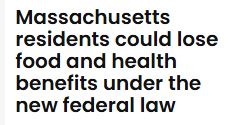HOME
ARTICLE
PAST ARTICLES
CONTACT
Ocotober 1, 2025
Big Bad Budget Cuts
Budget Cuts: Slice and Dice

Having to cut one's budget is typically not something one enjoys doing, and it's often done out of necessity, not voluntarily. In nearly all cases it's because one's income is insufficient to cover one's lifestyle with all the associated costs and expenses required to maintain it.
Mortgage, property, and income taxes, insurance, transportation, healthcare, and energy/utilities costs, rent, food, and extracurricular activities etc., all make demands on our income and if one's income can't meet the demand cuts have to be made. Even for the better, cutting one's budget can hurt, it means we have to let something go that we can no longer afford. Often it means letting go of something we like, something that brings pleasure, comfort, and convenience into our life and it hurts to let it go. It can cause us to feel bitter and resentful, angry, sad, relieved, happy, and many other things, but all this is on a personal level but what happens when budget cuts occur on the national level.
Government

It takes money to run any government, and the bigger the government and its bureaucracy, the more money, specifically taxes, and other forms of revenue it will take to run it. This is true for all three layers of government: federal, state, and local i.e. cities/towns, and as this current financial crisis continues to worsen we will see the desperate need and attempt to raise revenue increase. The effort to raise additional tax revenue will manifest itself in a variety of ways, stealthily, with names, descriptions, and explanations to camouflage what it really is, but a tax by any other name will still be a tax.
The Big Money Grab

Simply put, outside of a direct income tax hike, people can expect to see, for example, local government service fees and penalties increase, as well as confiscation (right or wrong) of personal property by both local and federal authorities. We can expect to see licensing, registration, and permit fees for construction projects, community activities, and other things go up in cost that require government approval. Increased property taxes, pressure placed on local law enforcement to write more traffic tickets for parking violations, speeding, etc., as well as an uptick in health and building code violations levied against businesses, homeowners, landlords, and other property owners, justified or not, will all be used as a giant fiscal fishing net to catch and draw in as much revenue as possible.
Moreover, unlike past recessions and financial crisis', this one will be characterized by the severity of the increases that will be continuous in nature, longer lasting, and in many cases permanent, the funds used to plug local government budgets that are bleeding red. Additionally, and particularly on the federal level, we can expect to see tax evasion and/or money laundering charges brought against small and large financial and non-financial businesses, even against wealthy individuals that will generate multiple millions or billions of additional government revenue.
In light of the above, one should not expect any serious and deep budget cuts to be carried out in earnest except as a last resort, or until the public has first been squeezed and bled dry of its money. At the beginning, many people will complain but take the governments aggressive actions to raise additional revenue in “stride” and its efforts will be seen as irritating and displeasing but bearable, until it really starts to hurt. The reality of the situation is that, as the economy further trends downward as it slows, and the means to pull in more revenue is greatly diminished, if not exhausted, that's when things get really unstable, shaky.
Shaky Times Ahead

Shaky is an accurate descriptive word when describing U.S. government finances, it's become a common description, just like it's common that tremors typically precede earthquakes, those tremors however are warnings that something really bad is happening beneath the surface. And like any noticeable tremor, the economic tremors we will experience will be viewed, heard, and read about on television, online, and in national and local newspapers. These tremors will be felt as federal, state, and local governments begin slashing budgets, laying off workers, cutting and/or reducing benefits and services as they grapple with excessive debt and fiscal deficits resulting from overblown budgets. But perhaps a bigger problem than this will be when millions of government dependents begin viewing the cutting and elimination of these benefits and services as an intrusion on and violation of their "rights".
The Welfare State: A Hand Up or Handout

I think it is grossly under appreciated just how dependent our society and the world has become on U.S. government largess. By offering multiple billions of dollars each year in loans, tax credits, rebates, subsidies, exemptions, contracts, grants, foreign aid, and other tax breaks and benefits the federal government has effectively created an unhealthy dependency on itself that includes individuals, families, large and small businesses and even foreign countries that rely on financial assistance from the U.S. government, in many cases, just to get by.
Domestically, America's welfare system encompasses all fifty states, whereby they too have become overly reliant on federal funding. For example, without federal aid, or a cut to it, many states would have to cut back on their own funding to the many cities and towns within their borders that they support. Moreover, federal cuts would ripple throughout the entire country, local programs and services would suffer, government contracts for small businesses become less lucrative and more competitive and difficult to obtain.
Non-Profits

Also, nonprofits all around the country will find themselves in intense competition for reduced government support via grants and other forms of largesse as private donations from individuals and foundations and other philanthropic organizations decline, or dry up altogether as this financial crisis intensifies. All this while still trying to provide social services to the communities they serve.
In addition to the above, and more troubling is that, this financial crisis will prove to be far more “challenging” for those states with sizeable populations of poor people, because to tell millions of government dependents that their benefits, services, and subsidies are going to be reduced and/or eliminated, (and) that they must bear more of the cost for those benefits remaining will not go over well with them, it will be less than welcoming news.
But leading up to that moment and depending on the severity of the situation, some states may opt to move more quickly and aggressively by instituting budget cuts, layoffs, and even raise income taxes in an effort to repair their damaged balance sheets while still trying to provide basic services. Other states however will "kick the can down the road" trying to buy time, expecting to “grow” their way out of their fiscal mess, hoping that things will improve for their local economies, while still other states will attempt to take a more “balanced” approach, e.g., some cities, states, and towns will cut a little here and add a few increases there, just enough cuts and increases to bring in some extra revenue without triggering a rebellion at the voting polls.
At the end though, what had previously been described as a financial pinch will have turned into a bite as deteriorating government finances force politicians to begin the serious business of deciding what to cut, and what to tax. So it is that, in the months and years ahead, as the above attempts to keep a lid on things begin to fail and not work anymore, these actions by government will eventually ignite a firestorm of protests, marches, and unrest as government recipients become “mad as hell” in response to what is happening to their benefits, benefits that millions have become reliant upon to survive that they believe (right or wrong) they have an inherent right to, and are entitled to. This will be a constituency of individuals, families, small business owners, nonprofit organizations, the unemployed, and millions of others, all mobilizing together who depend on government aid to provide them with free cell phones a.k.a. "Obamaphone" and internet access, subsidize their income, rent, daycare, food costs, healthcare, education, medications, lifestyles, and many other things, including a job.
Uncle Sam to the Rescue!

Eventually the mumbling and grumbling sound of angry, dissatisfied voters and tax payers will become lounder and louder, too loud in the ears of politicians to ignore, who, in response will spring into action by hastily rushing through new laws, rules, and regulations to help ease people's pain, but in many instances will only make things worse by producing the exact opposite results of those intended.
Government largesse is very expensive, so it goes without saying that it takes billions and trillions of dollars to fund and finance America’s welfare system, and as the system becomes more unsustainable something will have to give, either the system itself will have to change, or people's attitude, expectations, and/or beliefs about it, or both. Because at some point people will begin to realize that this recession, financial crisis is evolving into something different, unlike any other this nation has experienced before, but unfortunately, like the proverbial frog in a pot of slow boiling water most won't realize this until they're cooked.
FEEDBACK
Feel free to share your comments on this article by clicking the link below.
